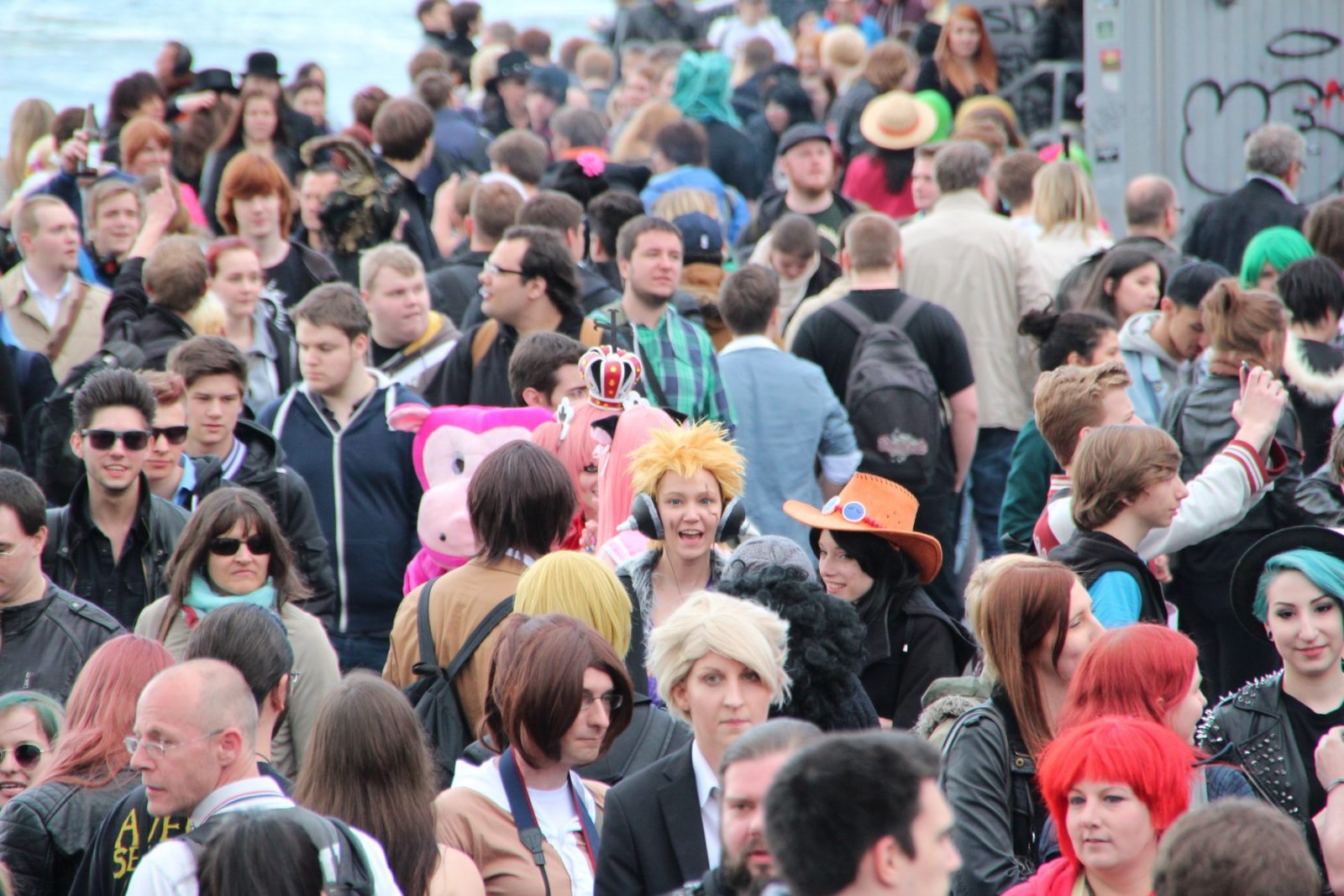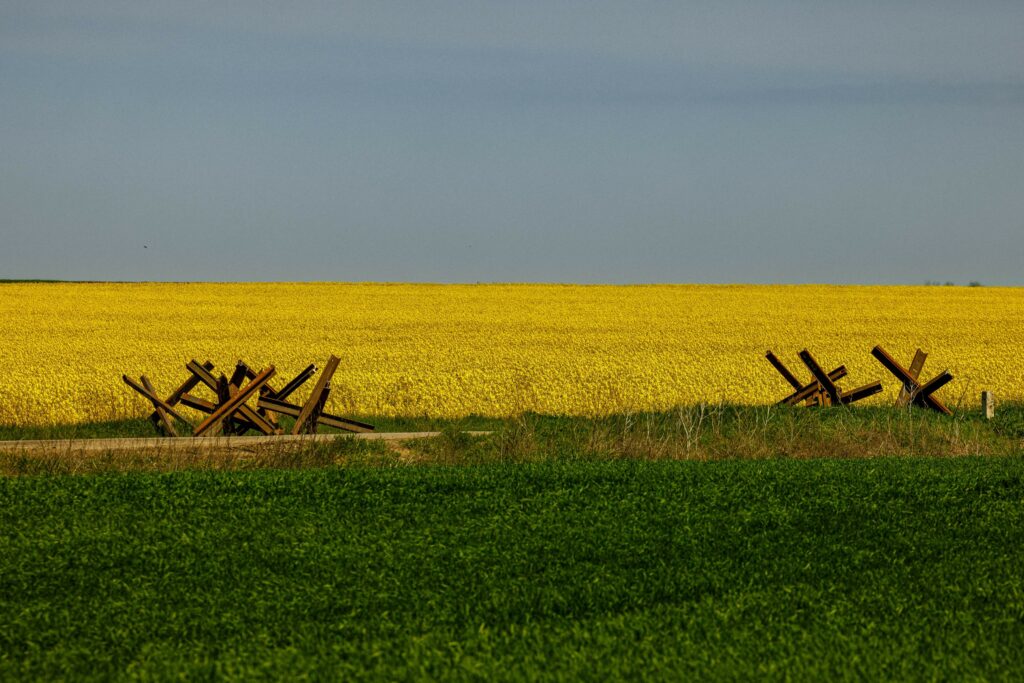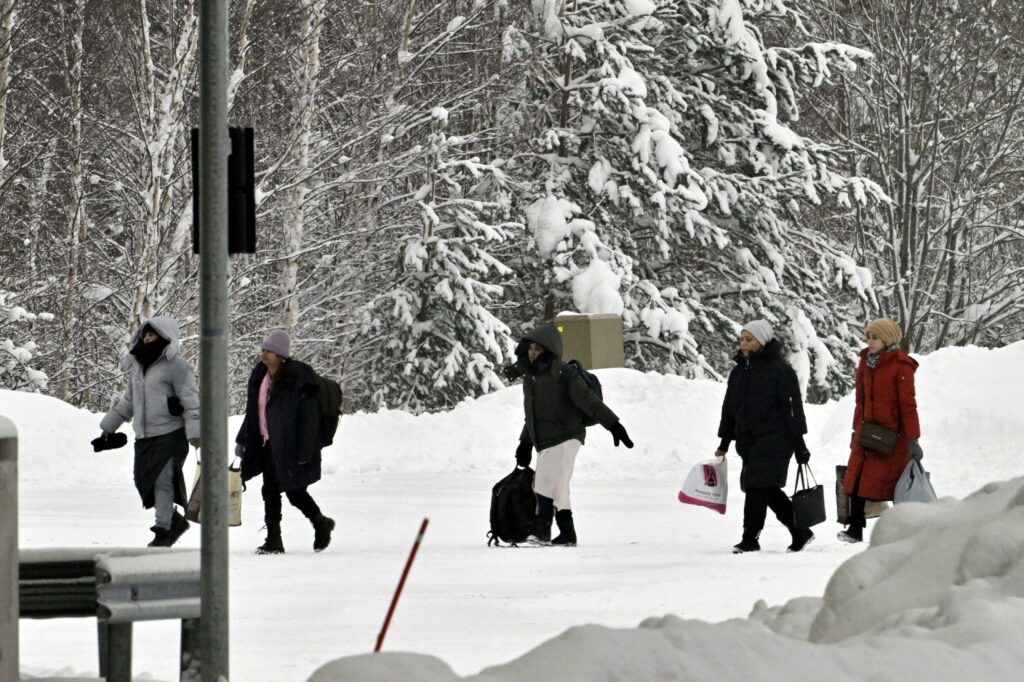Russia’s authorities have always had a difficult rapport with their citizens. Often they do not perceive a citizen as a separate individual, with their own interests and needs. For those in power, an individual is just a part of the Russian people. In official speeches, a lot of attention is paid to the desired uniform traits of these individuals. Politicians mostly praise an individual’s ability to be part of a collective.
Most presidential addresses to the Federal Assembly outline various ways to be uniform. The ideal Russian citizen, according to these speeches, always “protect and defend national interests, sovereignty and the independent policy of the state,” share common patriotic values, appreciate consolidation and unity and care about social interests. Although, as the president admits, citizens “are not always satisfied with everything,” they still “understand the reasons” and are ready to “stand united for Russia.” They do not “juggle eloquent words, talking of freedom as an excuse for insulting the feelings of others and national traditions.”
Public discourse promotes an image of the Russian people whose silence and unflagging support of their leader lend them a certain exceptionalism. Those who do not represent the traits of a mythical ‘us’ – whether because of their sexual orientation, their politics, or their religious views – are immediately labelled as a dangerous internal ‘other’. Society either ignores or restricts these citizens’ alien voices.
The search for the ‘other’, and setting oneself apart them, can be a natural social process. It lies at the core of the construction of a social group’s identity. Yet liberal societies today consider the presence of the ‘other’ as normal and healthy. These societies strive to cooperate with the ‘other’.
The 1990s was the only period in Russian history when ideological enemies turned into friends and friendly interest in the other was growing. However, already in the 2000s, offical discourse reverted back to the typical Soviet image of Russian society as ‘amorphous and mass-like.’ The individual is no longer valuable and, as the sociologist Boris Dubin put it, it is not development and prosperity, but the fact that ‘we are united’ that comes to the fore. This narrow consolidation of the Russian people, formulated in the 2000s, has been promoted even more aggressively by the Russian elite since 2012. The result has been an active search for the internal other and their demonization.
Politicians resort to simple but effective methods of stigmatising certain groups and presenting their activities as threatening. There is a plethora of criteria for delineating the ‘other’: morality/immorality, sexual orientation, religious and political beliefs, patriotism/an un-patriotic stance.
For example, protesters are officially called ‘brawlers’, ‘frenzied youth’, extremists, ‘those who hype themselves, taking advantage of someone else’s grief’ or saboteurs. In the best-case scenario, they are described as people who destabilise normal, everyday life. They are typically said to be aggressive, exacerbating the situation, and dangerous. They are juxtaposed with ‘our citizens’, who live their ordinary lives and do not trouble the authorities.
This trick is used quite often. For example, in October 2017, Nikolai Svanidze raised the issue of the violation of citizens’ rights during public gatherings at a meeting of the Presidential Council for Civil Society and Human Rights. In response, Vladimir Putin did not mention measures to prevent such violations, but spoke of “protesters or organisers of these gatherings who deliberately exacerbate the situation in order to attract attention.” He started by mentioning “certain groups,” and concluded that every public gathering critical of the authorities is aggressive and destabilises the normal course of life in large cities. He implicitly attributes the same characteristics to anyone participating in a rally.
This approach can be illustrated by the amendments to the Criminal Code under the provision about insulting the feelings of believers. Duma Deputy Mikhail Markelov justified the need for the amendments as follows:
“The law is not repressive. The law protects the feelings of citizens against the encroachment of those who express their hostile attitude to religious feelings of our citizens.”
Believers are referred to as citizens, and these are “our citizens.” In contrast, there are the encroachers. In other words, those who insult sensitivities are excluded from the community of citizens, despite their Russian citizenship.
Take, for example, Russia’s LGBT community. Although President Putin has always emphasized that “people with a non-traditional orientation are not discriminated against in our country,” any mention of “gays” has always been put in the context of defending children against sexual abuse and ensuring the future of Russian society in line with “the country’s cultural values.” In response to the proposal to amend the law that bans homosexual propaganda, to stop the upsurge of aggression that it triggered, Putin replied:
“The Russian people have their cultural code, their own tradition. We do not stick our nose into their (Europe’s) life and we demand the same respect for our tradition and our culture. I personally believe that society should protect its children at least in order to ensure further procreation (…). We want the Russians and other peoples of the Russian Federation to develop and to have a future. And we should ‘wipe out’ everything that stands in the way. However, we should do it in a humanitarian, civilised manner.”
Against this backdrop, it turns out that homosexuals do not represent “our traditions” or “our culture”; instead, they hinder the development of the Russian people. Thus, another group of citizens is excluded.
There are plenty of other individuals and groups of Russian citizens stigmatised by the authorities. This strategy allows the incumbent elite to silence vulnerable people on the margins. And Russian society pays a very high price for this: The search for the ‘other’ is dividing Russian society, fuelling hatred and intolerance. This divide is deepening.
In turn, this closes off channels of communication among social groups, as well as between the authorities and citizens. It deprives society of a forum for dialogue. As a result, Russian society, with its under-developed tradition of debate or tolerance, is unlikely to have honest, thoughtful discussions. Public debates become either bland or acrimonious. It all allows the authorities to continue feigning the existence of a mythical, united, obedient people.









